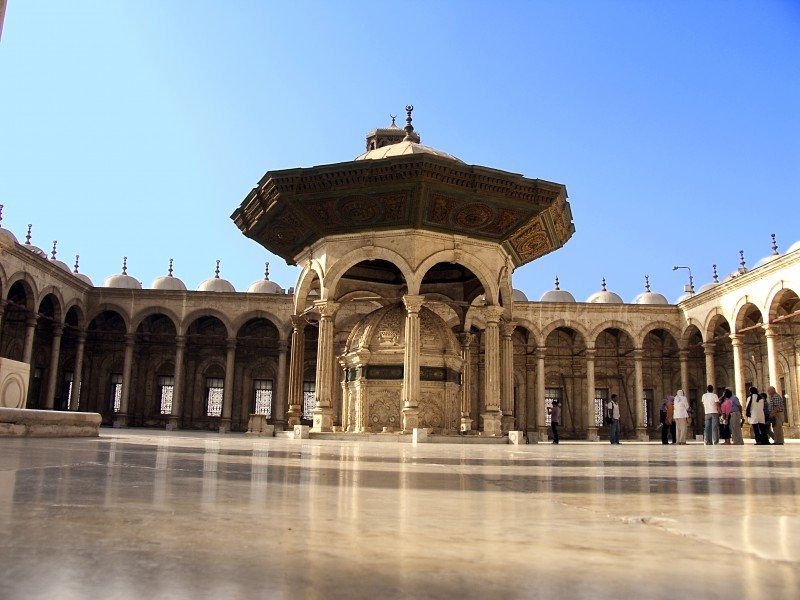Islamic Cairo is a mesmerizing journey into Egypt’s past, where towering minarets, bustling bazaars, and grand mosques tell the story of a city that was once the center of the Islamic world. This historic district, filled with architectural masterpieces and vibrant culture, offers a glimpse into the golden era of Islamic civilization. Whether you’re a history enthusiast, an architecture lover, or a curious traveler, a walk through Islamic Cairo is an experience unlike any other.
The Legacy of Islamic Cairo
Islamic Cairo, also known as Historic Cairo, is home to some of the most significant Islamic landmarks in the world. Founded in the 10th century, the city became a center for learning, trade, and religious scholarship under the rule of the Fatimids, Mamluks, and Ottomans. Today, its streets are lined with centuries-old mosques, madrasas (Islamic schools), and khans (traditional inns), each with its own fascinating story.
Must-Visit Landmarks in Islamic Cairo
1. The Citadel of Saladin
- Built in the 12th century by Sultan Salah al-Din (Saladin) as a defense against Crusaders.
- Home to the stunning Mosque of Muhammad Ali, also known as the Alabaster Mosque, offering breathtaking views of Cairo.
- Explore the historic museums and military structures inside the citadel.
2. Al-Azhar Mosque and University
- One of the oldest universities in the world, founded in 970 AD.
- A masterpiece of Islamic architecture, featuring intricate domes and elegant minarets.
- A center of Islamic learning, where scholars from around the world study religious texts and philosophy.
3. Sultan Hassan Mosque and Madrasa
- One of the most impressive mosques in Egypt, built in the 14th century.
- Notable for its massive size, towering walls, and beautifully decorated interiors.
- A prime example of Mamluk-era architecture, showcasing exquisite craftsmanship.
4. Ibn Tulun Mosque
- The oldest surviving mosque in Cairo, built in the 9th century.
- Known for its unique spiral minaret, which offers panoramic views of the city.
- A peaceful retreat with open courtyards and stunning geometric designs.
5. Al-Muizz Street: The Heart of Islamic Cairo
- A historic street lined with beautifully preserved mosques, palaces, and madrasas.
- Home to landmarks such as the Qalawun Complex, Bayt Al-Suhaymi, and Al-Hakim Mosque.
- A perfect place to experience the vibrant history and culture of medieval Cairo.
6. Khan El Khalili Bazaar
- Cairo’s most famous souq (market), dating back to the 14th century.
- A treasure trove of handcrafted souvenirs, jewelry, spices, and traditional textiles.
- Enjoy a cup of Egyptian tea at the legendary El Fishawy Café, a historic gathering place for writers and intellectuals.
The Cultural and Spiritual Essence of Islamic Cairo
Islamic Cairo is not just about magnificent structures; it’s a living, breathing cultural hub where traditions are kept alive. Visitors can:
- Experience Call to Prayer: The echoes of the adhan (call to prayer) resonating from minarets create a deeply spiritual atmosphere.
- Observe Traditional Craftsmen: Watch artisans at work in hidden alleyways, crafting everything from brass lanterns to handmade carpets.
- Savor Authentic Egyptian Cuisine: Try local delicacies like koshari, falafel, and freshly baked Arabic bread at traditional eateries.
Tips for Exploring Islamic Cairo
- Best Time to Visit: Early morning or late afternoon to avoid crowds and enjoy pleasant weather.
- Dress Modestly: Since most sites are religious, modest attire is recommended.
- Take a Guided Tour: A local guide can provide deep insights into the history and significance of each site.
- Bring Cash: Many local shops and cafes do not accept credit cards.
- Stay Hydrated: Cairo’s heat can be intense, especially in summer, so carry water with you.

